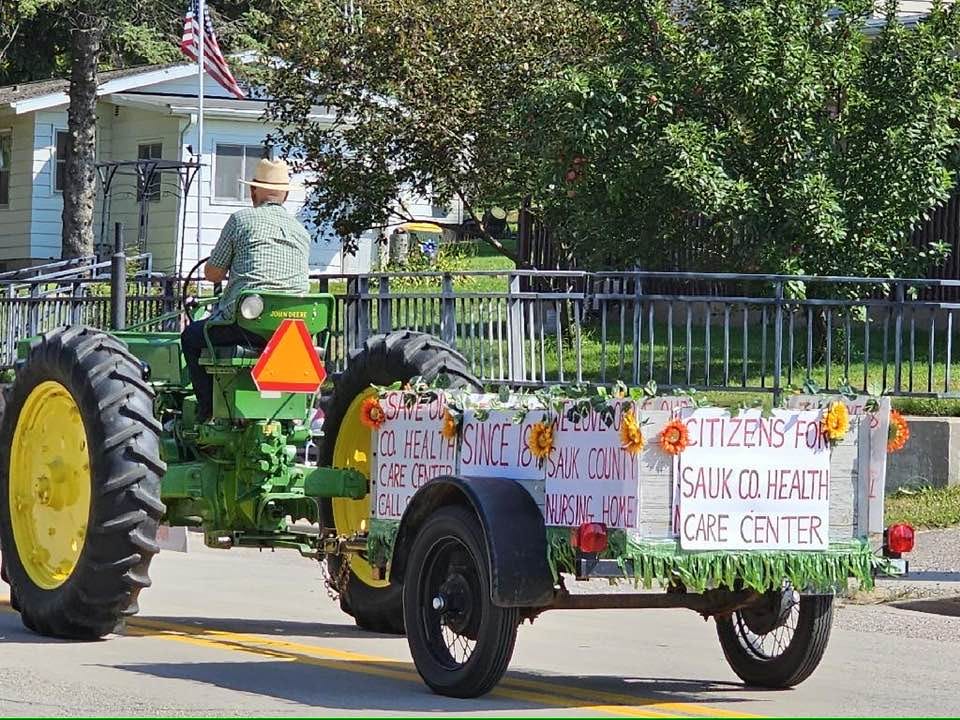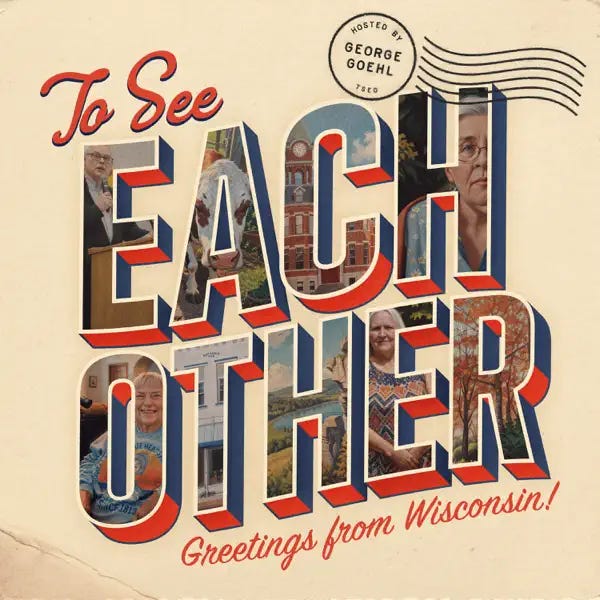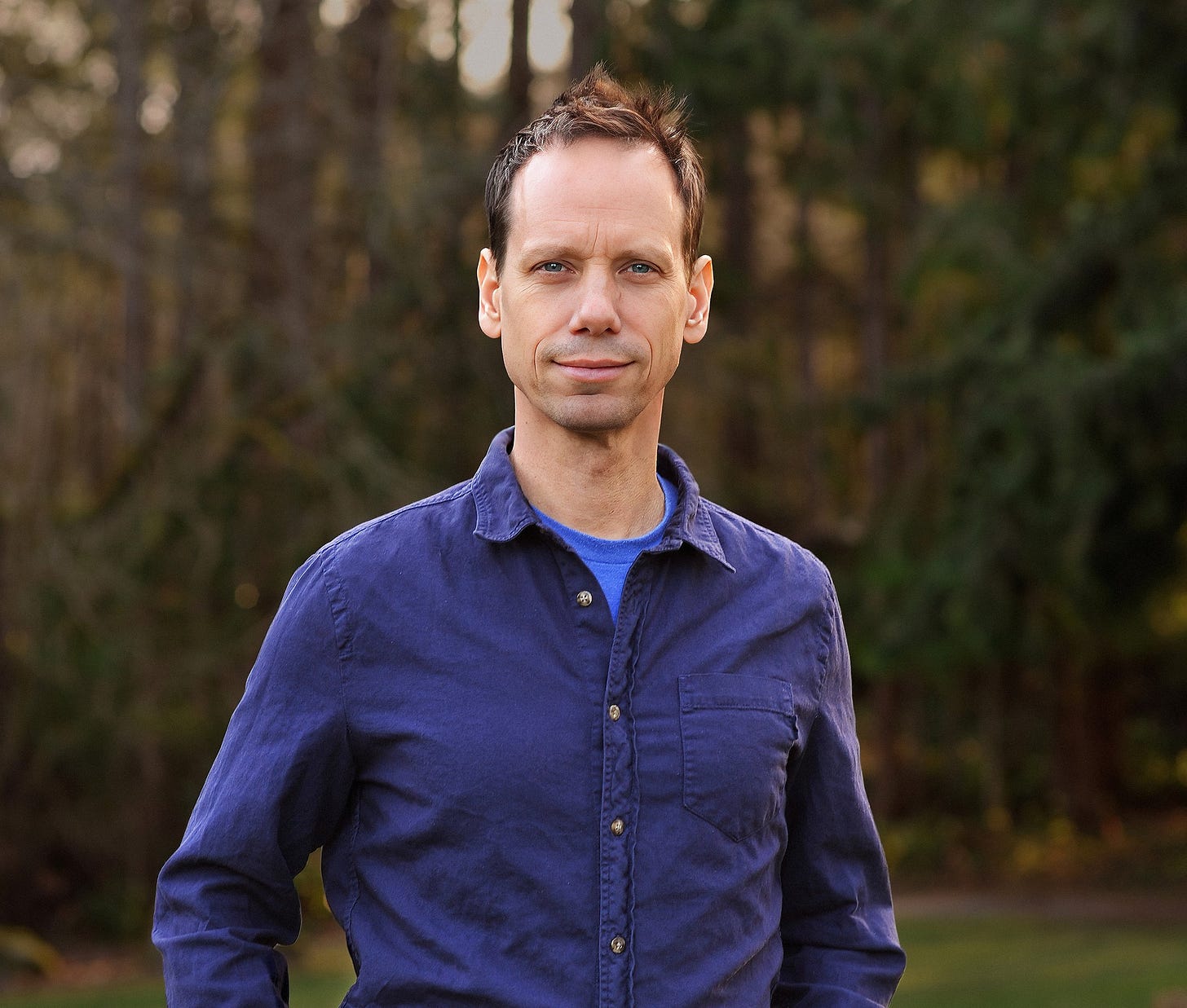How to win back rural America
Organizer George Goehl returns to talk about how a nursing-home sale sparked a small-town democratic uprising
Small-town America is more than a MAGA monolith. Conservative and far-right policies are just as often at odds with the needs of rural Americans as they are with the needs of Americans anywhere else.
That’s where organizers like George Goehl come in. Lately, the organizing veteran and practitioner-philosopher of “deep canvassing” — the in-depth method of political communication that Anand has explored in his book and that we’ve discussed here in the newsletter previously — has been working to help people in rural communities organize to push back against anti-democratic challenges that hit close to home, threatening eldercare, childcare, and land use.
That work has sparked the projects chronicled in the second season of Goehl’s “To See Each Other” podcast, premiering today. Like the first season, this new series will, in six episodes, explore how everyday people are reshaping small-town America, working against the prevailing misconception of rural Americans as a political, cultural, and racial monolith and exploring how diverse coalitions outside of major population and media centers are working for and often achieving real change. The first episode follows a group of activists in Wisconsin as they fight to save publicly owned nursing homes from privatization and resale by a conservative county board.
Check out Season 2 of “To See Each Other” beginning today on Apple Podcasts, Spotify, YouTube, Amazon, or wherever you get your podcasts.
A request for those who haven’t yet joined us: The interviews and essays that we share here take research and editing and much more. We work hard, and we are eager to bring on more writers, more voices. But we need your help to keep this going. Join us today to support the kind of independent media you want to exist.
Readers of The Ink probably know you best for your deep canvassing work, which you talked to Anand about for his book and we’ve discussed here in the past. You've done one season of your podcast “To See Each Other,” and since then you’ve begun some new organizing and now you are launching a second season based on that work. Can you tell us about your new work on the organizing front and why you feel it's important to bring that to readers and listeners in this podcast series?
Well, we launched “To See Each Other” as a kind of radio documentary series in 2020 and the build-up to that election and wanted to tell the story of great rural organizing happening in all kinds of communities across the country that was bringing people together across race, sometimes across partisanship to work on the things they could agree on.
In that organizing, a lot of waking happened and people started to pick issues, and they started to win things, but they also started to have conversations like, "Why weren't we in a room together to begin with?" And some of those conversations were very hard, but some of them were cathartic. And we started to build multiracial alliances where they might not otherwise exist. And we wanted to tell the story of that.
So many of the portrayals of people in rural America were very negative in lots of ways. The Wall Street Journal had a headline that called rural america the new inner city, which is like a problematic frame on so many levels. J.D. Vance's book rose to the top of the New York Times bestseller list. And basically, everybody thought if you were white and rural, you were a MAGA person. And so we wanted to challenge some of those stereotypes. So that's why we did that first season. I left People's Action, where we did that, around 2022 and created a new organization called Addition, meaning we grow by adding more people, not by limiting who we're going to engage.
And we do three things. We help incubate new organizing around the country. We train people how to do good working-class organizing and how to do it in language that would make sense to everyday people. And then we tell the story, which is in “To See Each Other,” among many other things.






